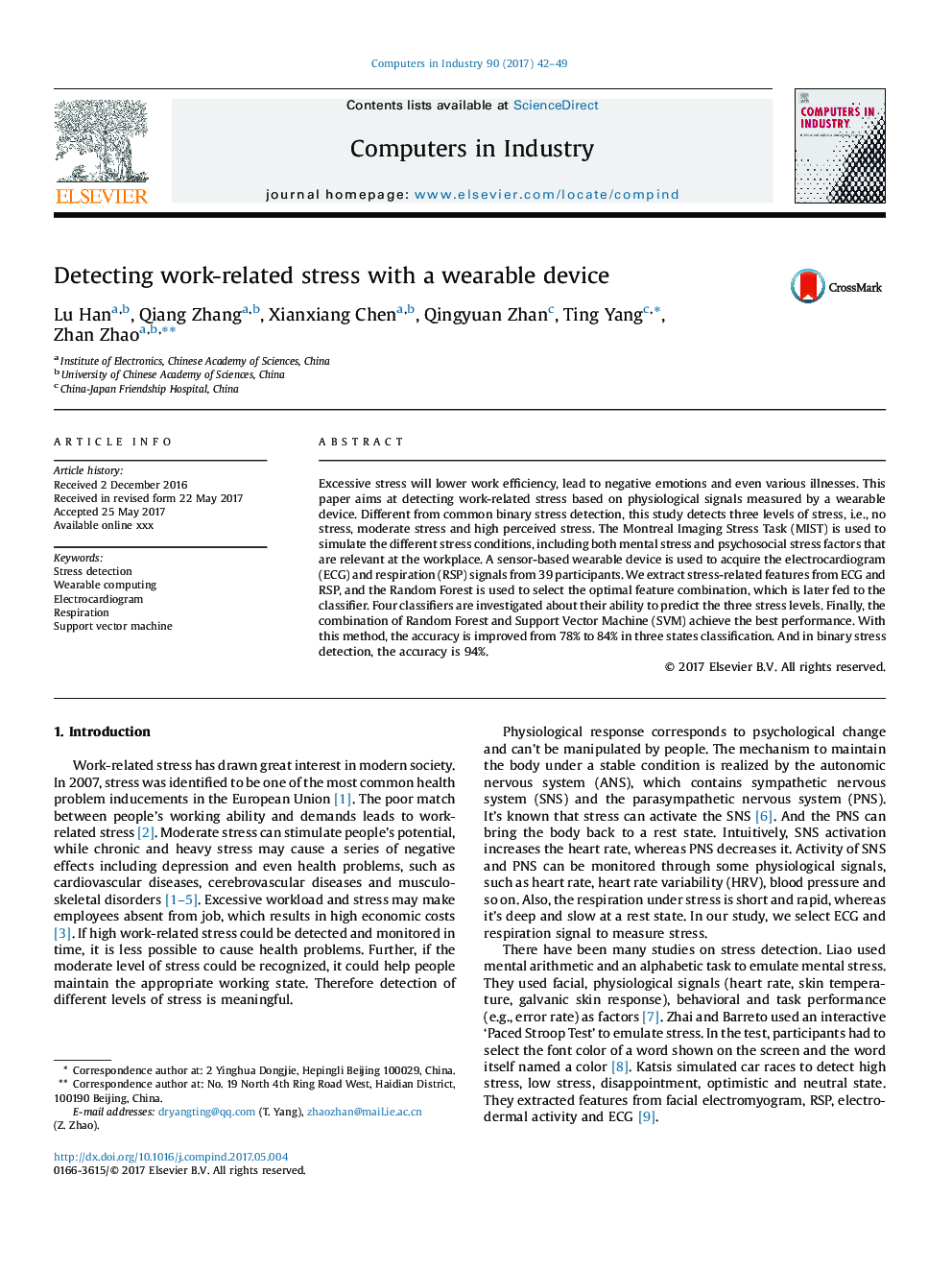| Article ID | Journal | Published Year | Pages | File Type |
|---|---|---|---|---|
| 4965512 | Computers in Industry | 2017 | 8 Pages |
Abstract
Excessive stress will lower work efficiency, lead to negative emotions and even various illnesses. This paper aims at detecting work-related stress based on physiological signals measured by a wearable device. Different from common binary stress detection, this study detects three levels of stress, i.e., no stress, moderate stress and high perceived stress. The Montreal Imaging Stress Task (MIST) is used to simulate the different stress conditions, including both mental stress and psychosocial stress factors that are relevant at the workplace. A sensor-based wearable device is used to acquire the electrocardiogram (ECG) and respiration (RSP) signals from 39 participants. We extract stress-related features from ECG and RSP, and the Random Forest is used to select the optimal feature combination, which is later fed to the classifier. Four classifiers are investigated about their ability to predict the three stress levels. Finally, the combination of Random Forest and Support Vector Machine (SVM) achieve the best performance. With this method, the accuracy is improved from 78% to 84% in three states classification. And in binary stress detection, the accuracy is 94%.
Related Topics
Physical Sciences and Engineering
Computer Science
Computer Science Applications
Authors
Lu Han, Qiang Zhang, Xianxiang Chen, Qingyuan Zhan, Ting Yang, Zhan Zhao,
